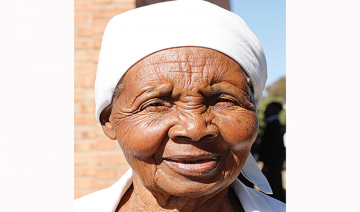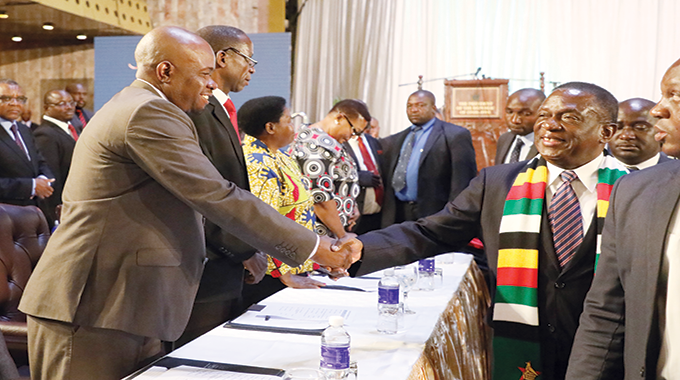No substitutes for mums

Kudzai Chikiwa/ Tonderai Zvimba, Showbiz Reporters
AS the world is gradually changing, parenting is also becoming dynamic as mothers are assuming different parental roles to suit the world that is becoming a global village.
Stories of how our grandmothers raised their children differ from the way today’s mothers are raising theirs and managing families.
While all mothers have their own mothering style, the new age mothers have been blamed for somehow failing to raise their children as there is a scourge of moral decadence in communities.
This is mostly because of the emergence of Vuzu parties where teenagers engage in unprotected sex, abuse drugs and alcohol. So bad is the situation that it has resulted in fatalities in one of the instances after one of the teenagers drank himself to death recently. As a result of this behaviour, the question most have been asking is, do these children – now popularly referred to as the 2000s, have parents, if so, are they raising them well.

Marah Dlodlo
Answering this was 90-year-old Mrs Morah Dlodlo (MaKhumalo) who has fond memories of the 1930s where raising a child was a collective responsibility. She said parents nowadays do not have time for their children hence why they are going astray.
“Long back, family used to be everyone’s pride. No one spent time on WhatsApp as young people do these days. Grandparents, aunts, uncles and parents made it a point that they taught children about culture and tradition,” she said.
While holding her walking stick and sitting in a confident posture, MaKhumalo said today’s children mirror the life of “Internet advisors” and their house helpers.
“With the prevailing economic challenges, parents tend to cross borders — for example to South Africa and leave young children with domestic workers. These children then mirror the values of their care givers who sometimes are immature, uneducated and morally decadent.
“This is why we have all these Vuzu parties in Bulawayo. Instead of getting advice from an aunt or uncle, today’s children go on YouTube and imitate the Western culture,” she said.
In order to try and fix this mess, MaKhumalo challenged, especially urban mothers, to be more involved in their children’s lives.
“Since aunts aren’t readily available nowadays, parents should be their children’s advisors. Life is not about spoiling children with money and gifts, but also being a responsible mother.
“As a mother, one should know where their child sleeps, who their friends are and what they spend their day doing,” she said.
Mrs Pretty Machakaire (63), who is a mother of three, said raising children has never been an easy task.
“I’ve always put God first when it comes to raising my children. I made sure that we attended church services every Sunday, took them to the village during holidays and all this helped them as far as morality is concerned. Raising children is never easy as it comes with a lot of challenges because they often get lost along the way. But as a parent, it’s your duty to control them,” Mrs Machakaire said.

Plaxedes Wenyika (left) and Sibusisiwe Dube with their children
The new technologies, she said, were wholly to blame for the moral decadence.
“Nowadays, I believe it’s difficult to monitor our children as parents as a result of these new technologies. Children can do all sorts of things without us noticing anything.”
Asked how she managed to take care of her family, Mrs Machakaire said: “I had my first child in 1980 and back then, my husband worked at National Breweries and earned a decent salary. But as black families, you get to raise some relatives’ children so I stayed with my late elder sister’s two children and had two more children so we had to juggle taking five kids through school.
“To make ends meet, I used to go to South Africa and sell crotchet patterns and combined that money with my husband’s salary. That’s how we pulled through.
“Back then, school fees wasn’t quite expensive and the economy was stable so that also worked to our advantage.”
Mrs Nomsa Ndlovu (55) said being a woman/mother comes with a lot of responsibilities. Turning to her life story, she said mothers should be prepared to take care of other children who are not their biological ones, in the event a relative dies.
“When relatives die, you as a mother need to make sure that you take care of the orphans. It takes a big heart to be able to welcome an extended family,” she said.
Mrs Ndlovu, who is a vendor, said when her two aunts died she had to take care of their three children in addition to her two. Narrating her struggles, she said she is never spared by economic stress from paying school fess, buying clothes and meeting other needs.
“My husband works, but it’s my duty to programme everything and make sure that the little we earn monthly can cover all our children. However, I want to encourage other mothers that no matter how bad the economy is, never ill-treat children whose parents passed on because one day they will take care of you,” said Mrs Ndlovu.
Mrs Anita Ngwenya (32) of Deli in Nyamandlovu said though children may misbehave, rural kids are easy to raise because they spend their free time at home.
While urban children have the liberty to go for so-called sleepovers and town just to mingle with friends, children in rural areas have their life confined at home.
“I don’t have a curfew for my girls because after school, they come straight home and do their chores. I closely monitor them.”
Mrs Ngwenya said with the socio-economic transformation, being a young mother comes with many economic challenges.
“Long back, our grannies used to sell livestock to send their children to school. By then it was a matter of paying school fess and buying uniforms, but now, the new curriculum comes with different demands.
“It demands children to have smart phones which we can’t afford because we are unemployed,” she said.
While the general consensus among the everyday mum is that raising children is no easy feat, what about celebrities? How are they raising their children?
Asked about her mothering style, former Miss Bulawayo, Sibusisiwe Dube-Muleya, who is in her 30s, said she has adopted a unique way of mothering which is both modern and traditional. She has two children, a boy aged 10 and a girl aged five.
“Being a mum with two energetic kids is a mammoth, but exciting task. As a modern mum, the trick is to balance all your activities – while ensuring that you play a major role in your children’s lives (moulding them).
“My children are my buddies as we pray, laugh, cry and travel together. However, I don’t just keep it modern as there’s a fusion of the traditional way of raising them. Teaching them to respect their elders, their culture and tradition is very important. Also, they have to be proud of who they are and what they have and do not have.
“I try to keep it natural so that they do not suffer from an ‘identity crisis’ in the long run,” Dube-Muleya said.
On tips for other mums, the former model, who recently completed her Masters Degree and is now working towards a PhD, said: “I encourage other mums not to be strangers to their kids. Know their bodies, minds and fears so that whenever any of those is violated — you are able to pick it up timeously.
“Also, don’t be a stranger to your kids. Chase your goals but don’t depend on the helper to fill in the ‘mother’s gap’ because only you can do so.”
Thirty-year-old ZiFM Stereo radio host MisRed (Samantha Mussa), who is a single mum to two girls, said although she is a celebrity, her parenting process is no different from other parents as she also goes through challenges that every parent goes through.
“Being a celebrity doesn’t take away the fact that I’m a parent who should be present for my family. I make sure I teach them respect and they should know that when we’re at home, it’s a mother-child relation not celebrity-fan relationship,” she said.
MisRed said support from family and friends is very crucial as grooming a child is a collective responsibility.
“I have a strong support system from my immediate family and girlfriends but more importantly, I have an amazing co-parenting partner. The dad is very present and supportive so I don’t necessarily feel the challenges much,” she said.











Comments